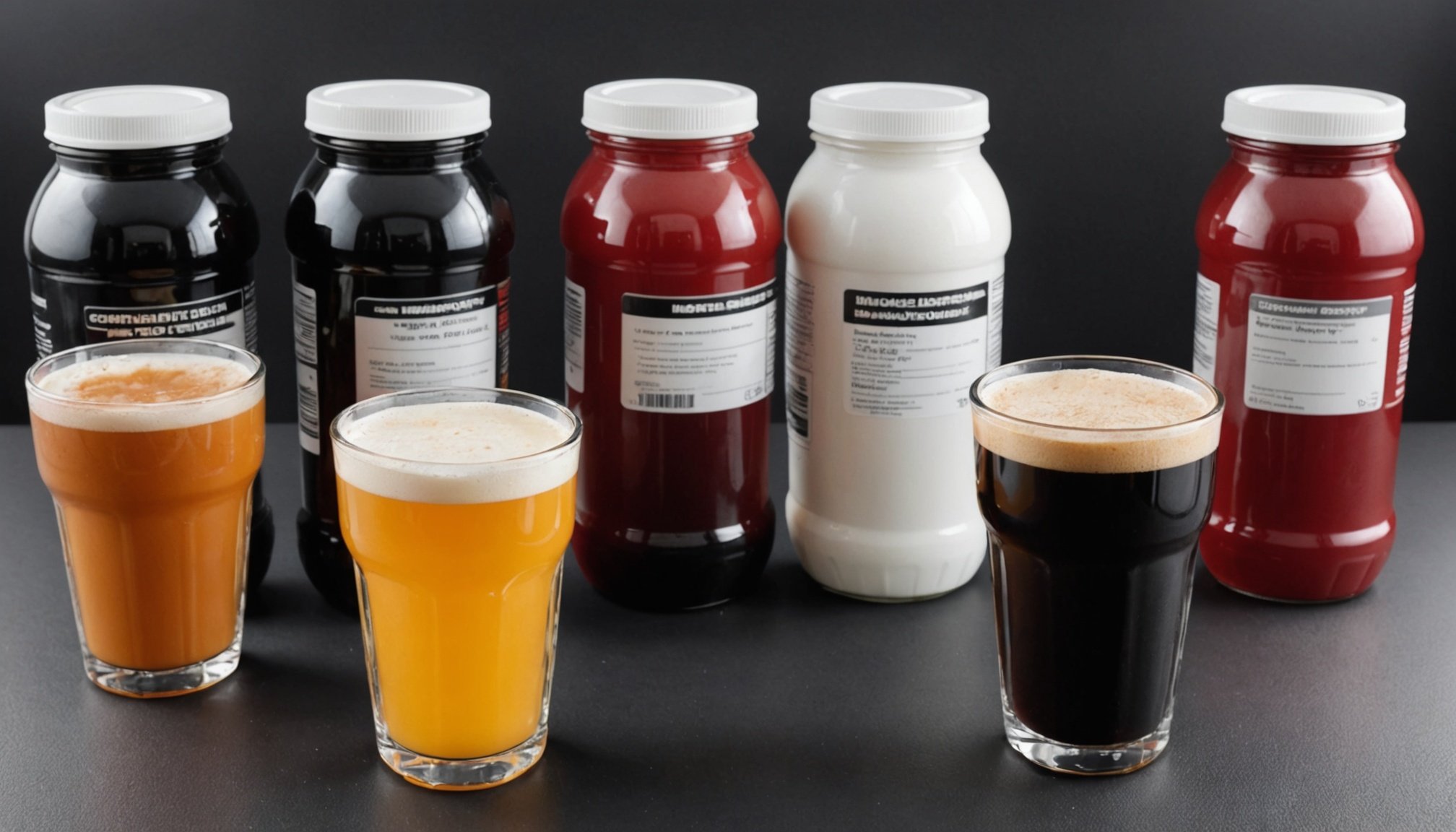In the world of fitness and exercise, keeping your body in peak condition is paramount. It’s not just about the strain and stress you put on your muscles during the training but also about the recovery process that follows. One of the key factors in muscle recovery is the synthesis of new proteins, a process supported by certain nutrients and hindered by others. In this article, we’ll take a deep dive into the sea of information on recovery drinks and their effect on muscle synthesis. And to get real scientific, we’ll be referencing scholarly research available on Google Scholar and PubMed.
The Role of Protein and Amino Acids in Muscle Synthesis
When it comes to muscle synthesis and recovery, proteins and their building blocks, amino acids, play an essential role. Amino acids, especially leucine, stimulate the synthesis of muscle protein and inhibit its breakdown. They are like the construction workers of your body, helping to build and repair muscle tissue after an intense workout.
In the same genre : What are the effects of altitude masks on cardiorespiratory fitness and muscle endurance?
According to a study published on PubMed, protein synthesis increases in the hours following exercise, reaching a peak around 24 hours post-workout(source). This is the prime time for your muscles to absorb and utilize the amino acids provided by protein, aiding in their recovery and growth.
But it’s not just about consuming protein; it’s also about when you consume it. Research suggests that protein ingestion immediately after exercise is more effective in promoting muscle synthesis than delayed protein ingestion(source).
In the same genre : What are the specific benefits of high-frequency training for muscle hypertrophy?
The Impact of Carbohydrates on Muscle Synthesis
Next to protein, carbohydrates are the other significant nutrient necessary for muscle recovery. While they don’t directly contribute to muscle synthesis, they play a crucial role in restoring muscle glycogen, the primary fuel your muscles use during exercise.
A systematic review posted on PubMed found that ingesting a carbohydrate-protein mix after resistance exercise enhances muscle glycogen resynthesis compared to a carbohydrate-only drink(source). This means that consuming a recovery drink containing both carbohydrates and protein can provide all the necessary components for optimal muscle recovery and synthesis.
The Detrimental Effects of Alcohol on Muscle Synthesis
While a post-workout pint might sound appealing, studies suggest that alcohol (ALC) consumption can negatively impact muscle recovery and synthesis. Unlike proteins and carbohydrates, alcohol can inhibit muscle protein synthesis and disrupt the normal repair processes that occur after exercise.
A study published on PubMed indicated that alcohol consumed after exercise suppressed muscle protein synthesis and impaired the muscle recovery process(source). This suggests that alcohol does not make for an effective recovery drink and can in fact hinder your performance in the long run.
Timing and Type of Recovery Drinks
The type of recovery drink you choose and the timing of its consumption can greatly affect muscle synthesis. As we’ve seen, a mixed drink containing both protein and carbohydrates can prove to be beneficial. However, when should you consume these drinks for maximum benefit?
Studies suggest that consuming a recovery drink immediately after exercise can enhance muscle protein synthesis. Furthermore, continued consumption of protein every three hours post-exercise can maintain elevated muscle protein synthesis rates(source).
Leucine: The Special Amino Acid
Leucine, a branch-chained amino acid, holds a special place in the muscle synthesis process. It has been shown to stimulate muscle protein synthesis more than any other amino acid.
A study posted on Google Scholar demonstrated that leucine-rich drinks consumed after resistance exercise significantly increased muscle protein synthesis rates(source). This suggests that recovery drinks containing leucine could be particularly beneficial for muscle recovery and growth.
In summary, the choice of your recovery drink and the timing of its consumption can significantly impact your muscle synthesis and ultimately, your performance. While proteins, carbohydrates and the amino acid leucine enhance muscle recovery, alcohol has been shown to have detrimental effects. Understanding this can help you make informed choices about your post-workout nutrition, setting the stage for optimal recovery and growth.
The Crucial Role of Hydration in Muscle Synthesis
Besides macronutrients like protein and carbohydrates, hydration is another crucial factor in muscle recovery and synthesis. When we exercise, our bodies lose water and electrolytes through sweat. If these vital substances aren’t replaced, it could lead to dehydration, which can significantly hamper muscle recovery and growth.
Water serves as a transport system in our bodies, carrying essential nutrients to our muscles. Moreover, maintaining adequate hydration can improve muscle protein synthesis. A study published on PubMed showed that dehydration reduced muscle protein synthesis rates after resistance exercise(source). This underscores the importance of water in muscle recovery and the potential negative effects of dehydration.
Furthermore, electrolytes such as sodium and potassium help regulate muscle contractions and nerve impulses. They play a significant role in muscle recovery by maintaining fluid balance and ensuring proper muscle function. Thus, a recovery drink that includes electrolytes can be advantageous.
However, it’s important to note that overhydration can also be detrimental. Excessive consumption of water can lead to hyponatremia (low sodium levels), which can interfere with muscle function and recovery.
Muscle Synthesis and the Effects of Caffeine
In the fitness world, caffeine is often touted for its performance-enhancing effects. But what about its impact on muscle synthesis?
Research available on Google Scholar suggests that caffeine can play a beneficial role in muscle recovery and growth. One study found that consuming caffeine with carbohydrates after glycogen-depleting exercise led to 66% greater glycogen resynthesis than just carbohydrates alone(source). This indicates that caffeine could potentially enhance the effects of carbohydrates on muscle recovery.
Another study, published on PubMed, demonstrated that caffeine ingestion, in combination with carbohydrates and protein, could enhance muscle protein synthesis after resistance exercise(source). However, it’s important to remember that the effects of caffeine can vary widely among individuals due to factors such as tolerance and genetic predisposition. Therefore, it’s best to consume caffeine in moderation and listen to how your body responds.
Conclusion
In the journey of muscle recovery and growth, recovery drinks play a critical role. As we’ve seen, the type and timing of the drink you choose can have a significant impact on muscle synthesis. Proteins and carbohydrates, especially when consumed immediately post-exercise, can stimulate muscle growth. Leucine, a special kind of amino acid, has been shown to further enhance this process.
Hydration is also fundamental, with water and electrolytes aiding in nutrient transport and muscle function. Interestingly, caffeine also seems to hold potential in boosting muscle recovery when consumed in conjunction with carbohydrates and proteins.
However, not all drinks are beneficial. Alcohol consumption post-exercise can inhibit muscle protein synthesis and hinder your progress.
Deciphering through this sea of information might seem overwhelming, but understanding these key points can help tailor your post-exercise nutrition strategy. The right recovery drink, consumed at the right time, can help you optimize your muscle recovery and growth, paving the way for better performance and progress. Remember, everyone is unique, and what works best for you will depend on your body, your goals, and your training regimen. Make informed choices, listen to your body, and keep striving for progress.






